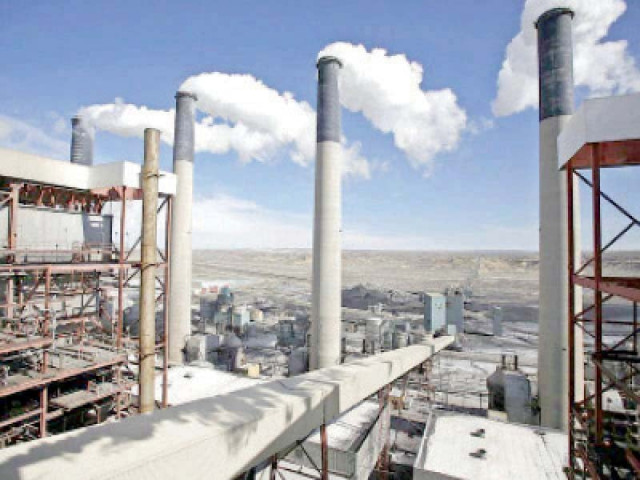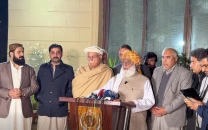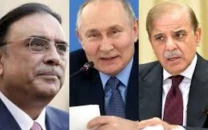PM unveils Rs200b package for industry
Shehbaz orders 24% cut in electricity rate for commercial users; reduces fuel prices

Prime Minister Shehbaz Sharif on Friday announced an over Rs200 billion “relief package” for industrial electricity consumers through a 24% reduction in their current per unit rates – giving back more than Rs125 billion that the government will collect from exporters in income tax next year.
The PM’s decision is based on a recommendation by the power sector regulator which, on Friday, cut the cross-subsidy of industries by Rs10.69 per unit but approved an increase of Rs5.72 per unit for the residential consumers.
In another announcement, the prime minister also approved a Rs10.20 per litre reduction in the prices of petrol –- a day before the scheduled fortnightly adjustment. The two separate announcements appear to calm people who are extremely aggrieved due to unjustified taxation — particularly for the salaried class. The diesel prices were cut by over Rs2.33 per litre.
Prime Minister Shehbaz Sharif on Friday approved a reduction in electricity tariff for the industrial sector by Rs10.69 per unit in order to boost production and exports, according to an official announcement by the Prime Minister’s Office.
It added that the new electricity per unit price for the industrial and export sector has now been fixed at Rs34.99 –a 24% reduction compared to the expected rates.
The National Electric Power Regulatory Authority (NEPRA) had recommended a reduction of Rs10.69 per unit for industries, said the PM’s Office.
The industrial sector was cross-subsidising the residential consumers, which the NEPRA has disallowed this time. This has provided Rs240 billion relief to the industrial sector but its burden has partially shifted to the budget and the remaining has been passed on to the electricity consumers.
For this fiscal year, the government recovered Rs676 billion from residential, commercial and industrial consumers to pay subsidies to lower-end residential consumers. Out of this Rs676 billion, an amount of Rs240 billion had been charged to the industrial consumers.
However, the PM has only felt the pain of an industry that was becoming uncompetitive due to undue increases in its prices caused by cross-subsidisation. The premier has not yet implemented such a decision for the residential consumers who are also paying the price over and above the cost of electricity to subsidize low-end residential consumers.
In anticipation of the NEPRA’s decision, the government had already allocated Rs120 billion “additional subsidy” in the proposed budget 2024-25. The allocated additional subsidy is almost equal to the Rs125 billion that the government plans to recover from exporters in the next fiscal year by ending their fixed income tax regime.
The industrialists have received back more than what they were going to pay in the shape of income tax –an arrangement where the government has taken political mileage and at the same time did not put any additional burden on them. Rather, the Rs115 billion burden has been taken off even after adjusting Rs125 billion in income tax payments.
Since the salaried class has no voice, it has been slapped with Rs75 billion additional income tax and a Rs5.72 per unit increase in electricity prices –the third such increase in as many years.
“The PM’s package, which is expected to provide relief of over Rs200 billion to the industry, will help bring down the manufacturing cost of the goods making them competitive in the global market,” according to the Prime Minister’s Office.
The initiative would also help decrease the prices of agricultural commodities, it added.
The PM Office said that Shehbaz Sharif’s step will likely spur industrial growth, create new job opportunities, and stimulate economic activity.
However, the Rs5.72 per unit increase that the NEPRA announced on Friday will be the third such increase on account of annual adjustments. During the past two years, the government has increased the average prices in the range of Rs7 per unit to Rs8 per unit. The annual adjustments are in addition to the monthly and quarterly price adjustments.
In March this year, Pakistan assured the International Monetary Fund of a timely increase in electricity prices, including the recovery of pending generation costs totalling over Rs210 billion.
The Pakistani authorities apprised that the upcoming increases in electricity prices would overburden consumers due to multiple increases on account of monthly fuel adjustments, quarterly adjustments, and the upcoming big annual base tariff increase.
Pakistan has informed the IMF that electricity prices may skyrocket in July due to simultaneous adjustments on account of monthly, quarterly, and annual increases in tariffs. The NEPRA has approved the second increase, as it has already implemented quarterly adjustments.
The prices of electricity are going to skyrocket after the implementation of all three increases in July.
Fuel price reduction
PM Shehbaz Sharif also announced a significant cut in petrol and diesel prices by Rs10.20 per litre and Rs2.33 per litre respectively. Earlier on June 1, the government had announced to cut the petrol price by Rs4.74 per litre while that of HSD by Rs3.86 per litre, a PM Office press release said on Friday.


















COMMENTS
Comments are moderated and generally will be posted if they are on-topic and not abusive.
For more information, please see our Comments FAQ